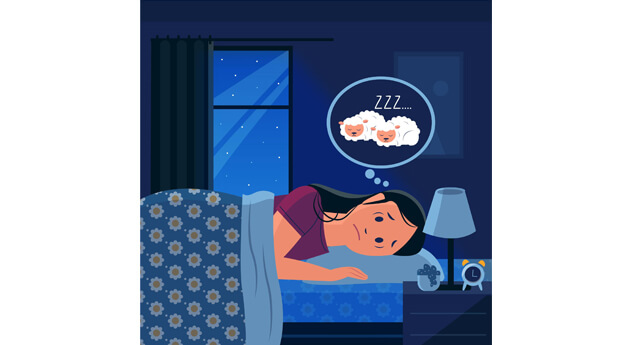Home Remedies for Insomnia – Sleep Better Tonight
Millions of people struggle with insomnia, a condition that disrupts the quality of sleep and affects overall health. If you’re seeking natural remedies to combat sleeplessness, you’re in the right place. This comprehensive guide explores proven home remedies to help you sleep better tonight.
What is Insomnia?
Insomnia is a sleep disorder characterized by difficulty falling asleep, staying asleep, or waking up too early without being able to return to sleep. Chronic insomnia can lead to fatigue, poor concentration, and a weakened immune system. Understanding the root causes is essential for effective treatment.
Symptoms and Causes of Insomnia
Symptoms of insomnia include:
- Trouble falling asleep
- Waking up frequently during the night
- Feeling tired upon waking
- Daytime drowsiness or irritability
Common causes of insomnia:
- Stress and anxiety
- Poor sleep hygiene
- Irregular sleep schedules
- Excessive caffeine or alcohol consumption
- Underlying medical conditions
Natural Home Remedies for Insomnia
1. Create a Consistent Sleep Schedule
Sticking to a regular sleep-wake cycle helps regulate your body’s internal clock. Go to bed and wake up at the same time every day, even on weekends. This consistency encourages a natural rhythm for better sleep.
2. Optimize Your Sleep Environment
- Darkness: Use blackout curtains or an eye mask to block light.
- Noise: Reduce distractions with white noise machines or earplugs.
- Temperature: Maintain a cool room temperature, around 60–67°F (15–20°C), ideal for restful sleep.
- Comfortable Bedding: Invest in supportive pillows and mattresses for optimal comfort.
3. Limit Caffeine and Alcohol
Caffeine, found in coffee, tea, and chocolate, stimulates the nervous system and disrupts sleep. Avoid consuming caffeine after 2 PM. Similarly, while alcohol may initially make you drowsy, it often leads to fragmented sleep later in the night.
4. Herbal Teas and Supplements
Certain herbs and natural supplements promote relaxation and induce sleep.
- Chamomile Tea: Known for its calming effects, chamomile tea can improve sleep quality.
- Valerian Root: This herbal supplement reduces anxiety and enhances sleep.
- Magnesium: A deficiency in magnesium can cause restlessness; supplementing with magnesium supports muscle relaxation.
5. Practice Relaxation Techniques
Relaxation techniques calm the mind and prepare the body for sleep:
- Meditation: Focus on deep breathing and mindfulness.
- Progressive Muscle Relaxation (PMR): Gradually tense and relax each muscle group.
- Yoga: Gentle stretches release tension and reduce stress.
6. Aromatherapy for Sleep
Essential oils like lavender, chamomile, and sandalwood are renowned for their soothing properties. Add a few drops of essential oil to your pillow, or use a diffuser in your bedroom for a calming ambiance.
7. Exercise Regularly
Physical activity improves sleep by reducing stress and tiring the body. Aim for at least 30 minutes of moderate exercise daily, such as walking, swimming, or yoga. Avoid vigorous workouts close to bedtime, as they may interfere with relaxation.
8. Limit Screen Time Before Bed
Electronic devices emit blue light, which suppresses melatonin, the sleep hormone. Switch off screens at least one hour before bedtime. Consider using blue light-blocking glasses or night mode on devices if screen use is unavoidable.
9. Follow a Bedtime Routine
Create a calming pre-sleep routine to signal to your brain that it’s time for rest. Activities might include:
- Taking a warm bath
- Reading a book
- Listening to soothing music
10. Balanced Diet for Better Sleep
Nutritional choices significantly influence sleep. Incorporate these foods for improved sleep quality:
- Bananas: Rich in magnesium and potassium, they relax muscles.
- Almonds: High in melatonin and magnesium.
- Oats: Contain sleep-promoting nutrients like melatonin and complex carbohydrates.
- Kiwi: Packed with serotonin, a precursor to melatonin.
Avoid heavy or spicy meals before bed, as they can lead to discomfort and indigestion.
11. Try Sleep-Inducing Drinks
Natural drinks can promote relaxation before bedtime:
- Golden Milk: A warm blend of turmeric, milk, and honey has calming effects.
- Tart Cherry Juice: Rich in melatonin, it can improve sleep duration and quality.
12. Cognitive Behavioral Techniques
If racing thoughts keep you awake, try cognitive behavioral techniques to challenge negative thought patterns. Write down your worries before bedtime to offload mental stress and achieve peace of mind.
13. Exposure to Natural Light
Exposure to sunlight during the day regulates circadian rhythms. Spend at least 30 minutes outdoors each day to improve your body’s natural sleep-wake cycle.
14. Avoid Long Daytime Naps
While short naps can boost energy, long or irregular naps may disrupt nighttime sleep. Limit naps to 20–30 minutes and avoid napping in the late afternoon.
When to Seek Professional Help
If home remedies fail to alleviate insomnia, consult a healthcare professional. Chronic insomnia may indicate underlying health issues that require medical intervention.
Conclusion
By implementing these home remedies for insomnia, you can create a supportive environment and adopt habits that promote better sleep. Remember, small changes can lead to significant improvements in sleep quality and overall well-being. Start applying these tips tonight for a more restful and rejuvenating sleep.







